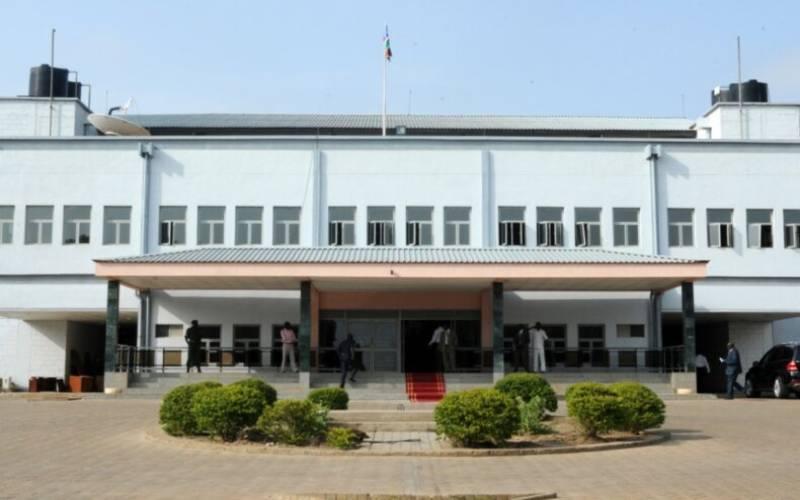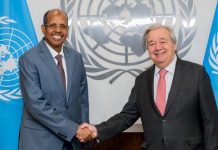Keji Janefer
Africa-Press – South-Sudan. After failing to meet the timelines outlined in the roadmap, the parties to the 2018 revitalised peace agreement received all of the jabs at the end of 2022. However, the government finished the calendar year with a remarkable push to have the pending tasks in the peace agreement implemented.
President Salva Kiir assented into law four crucial bills presented to him by the parliament ratifying international conventions and treaties on security.
A week before Christmas, President Salva Kiir signed eight significant bills that must be reviewed and amended in accordance with the agreements that have been passed by the Reconstituted National Legislative Assembly, after passing through all the formalities required for them to become laws.
The revitalised peace accord gives the parliament the responsibility of supporting the agreement and passing legislation that supports and facilitates the reforms and transitional procedures.
More importantly, President Kiir has signed the bill for the drafting of the country’s permanent constitution, allowing the reconstitution of the National Constitutional Review Commission to kick start the process of drafting the new constitution.
The National Prisons Service Act of 2011, the National Civil Defense Service Act of 2022, the Sudan People’s Liberation Army Act of 2009 (Amendment) Act of 2022 on the 29th of June 2022, and the Political Parties Act of 2022 (Amendment) Act of 2022 on the 24th of June 2022 are among the bills passed by the legislative branch of the government and signed by the president.
The National Wildlife Service (Amendment) Act of 2022, the Transitional Constitution of the Republic of South Sudan 2011 (Amendment) No.11 Act, and the National Police Service (Amendment) Act of 2022 are all laws that take effect in 2022.
The legislature also amended the Transitional Constitution of the Republic of South Sudan 2011 (Amendment) No.11 Act, 2022, to include the roadmap that extends the term of the agreement and the government, which is set to expire in February 2023, in the transitional constitution.
In addition, South Sudan ratified the Paris Climate Agreement (the Paris Agreement) in April 2016 and submitted its instrument of ratification as the 147th country out of 193 on the list. The Paris Agreement is a pact that the United Nations Framework Convention on Climate Change (UNFCCC) has made about the reduction and adaptation of greenhouse gas emissions.
Protocol to the African Charter on Human and People’s Rights on the rights of women in Africa, the International Covenant on Economic, Social, and Cultural Rights, as well as the International Covenant on Civil and Political Rights (ICCPR),
Others include the Paris Agreement and the International Covenant on the rights of persons with disabilities, 2006, and the International Conventions on Prohibition of the Development, Production, and Stockpiling of Bacteriological (Biological) and Toxin Weapons and on their Destruction.
Other gains made in the process
The implementation of the peace agreement has been faced with many challenges, including limited political will, funding, and ongoing deadly communal clashes, which is still ongoing in parts of the country.
Despite the delays in the implementation of the R-ARCSS, the peace deal remains the only window of opportunity to transform the governance system, security architecture, and economic and financial management institutions that can deliver the needed social, and development services to the impoverished people of South Sudan.
The parties to the Revitalised Agreement on Resolution of Conflict in the Republic of South Sudan (R-ARCSS) signed an agreement to unify the security command structure.
The agreement, brokered by neighbouring Sudan, one of the partners to the September 2018 agreement, has allowed the integration of armed opposition commanders and forces from the Sudan People’s Liberation Movement/Army in Opposition (SPLM/A IO) and South Sudan Opposition Alliance (SSOA) into the South Sudan People’s Defense Force (SSPDF).
The agreement is significant because it would ultimately allow for the management of the nation’s security apparatus under a single chain of command, with President Kiir serving as the Commander-in-Chief and Dr. Riek Machar serving as his deputy.
In July, the First Vice President, Dr. Riek Machar, launched the judicial reform committee, which was endorsed by the Council of Ministers, giving the members legality to commence their work. The chair is selected from Uganda, while the deputy is from Kenya, and other members of the committee are drawn from parties to the agreement.
Also, the technical committee on commission on truth, reconciliation, and healing, mandated to hold public consultations across South Sudan, was launched by President Salva Kiir in April.
However, on realising that the was still time for the implementation of the peace deal, the parties have initiated a roadmap to implement the pending provisions of the agreement to pave the way for election.
In August, they signed the agreement on the roadmap to a peaceful and democratic end to the transitional period, extending the period for another two years, and have earmarked how the remaining provisions will be tackled in the next two years, chapter by chapter.
So far after the signing of the roadmap, the security committee (Joint Defense Board) has graduated the majority of the first batch of the necessary unified forces, with exception of one training centre left in Unity State to be graduated before their deployment commence.
For More News And Analysis About South-Sudan Follow Africa-Press






